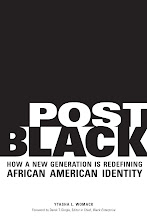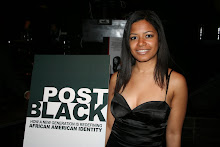Dorothy Roberts is author of the new book Fatal Invention: How Science, Politics, and Big Business Re-create Race in the Twenty-First Century (New Press, 2011). She is also the Kirkland & Ellis Professor at Northwestern University School of Law and a faculty fellow at the Institute for Policy Research, with appointments in the departments of Sociology and African American Studies. Here she discusses the rise in identifying race as biological among some scientists.
YLW: Why did you write Fatal Invention?
DR: I decided to write it because I have noticed resurgence in the use of the term race as a biological category. And also [I noticed] a growing acceptance among colleagues and speakers that race really is biological and somehow genomic science will soon discover the biological truths about race. The more I looked into it, I saw there were more scientists that said they discovered race in the genes, more products coming out showing that race is a natural division.
YLW: But race is not biological, it’s purely a political creation.
DR: I thought this trend [of race as biological] was supporting a false concept of race. But also, I was alarmed that knowing history; the biological construct of race has been used to obscure the political origin of racial inequality, to make it seem as if the reason people of color are disadvantaged in society is natural, as opposed to political and institutional.
It’s a very frightening development. We would accomplish so much more, if all the money that was going into race based genes were going into cleaning up the toxins in black neighborhoods that cause black people to get cancer and die, cleaning up education or basic health care for everybody.
YLW: Many people have a hard time accepting that race is a political creation and not biological, despite the years of proving otherwise.
DR: There are some people who understand this- using economic theory and research showing you that you cannot divide the human race into species. Scientist have known this and proved it definitively for decades. So it’s alarming when you see scientist promoting race as genetic.
YLW: Can you give me examples of the false notion of race as biology that’s popping up in science that your reference in your book?
DR: There are ancestry groups testing customers that say with a cheek swab they can trace your ancestry. Then you have federal and state authorities that are amassing DNA databases that compel people to give up their DNA if they are arrested. As a result these databases are disproportionately made up of black and Latino profiles. Pharmaceuticals targeted people according to race. The food and drug administration has already targeted a heart therapy for black patients. It was only turned into a race specific drug when the original patent ran out.
DR: There are studies to explain racial divisions in health that are actually caused by social inequalities. Yet you have researchers studying high blood pressure, asthma among blacks, etc. and looking for a genetic cause. However, research shows these [illnesses] are the effects of racial inequality and the stress of racial inequality.
YLW: So race based medicines, like a heart medicine for African Americans, are illogical, because since race isn’t biological, you can’t have a medicine targeting this group?
DR: Correct. Of those who say [race is biological], they usually point to sickle cell anemia, as proof that illnesses are race-based. Even if you look at these genetic diseases that seem to run along with race, it’s actually caused by environment. Sickle cell is an adaptation in areas with high rates of malaria. You find it in some areas of Africa, Asia and Europe. It’s not about race at all.
DR: To me it’s so obvious that race is a political category. Who is considered black, Asian, Indian, all these things changes depending on political circumstances and are determined by political markers. Yet people hold on to this idea that if scientist keep searching and searching they will find the divisions of a human species, and we’ve found it is a false pursuit.
YLW: You argue that the scientific inquiry in looking to genetics to create health remedies has led to an interest in looking to genetics to explain a host of social ills and challenges including race.
DR: Genes can never tell you anything without looking at the environment that they are expressed because of the very cells of our bodies. There is not a gene that causes cancer. That is false. After spending millions and millions of dollars they have not come up with the genes that cause cancer or diabetes or any of these diseases. It’s been a false hope, now they are looking to race as a way to make money off of this failed attempt to make money off of a gene map. Race is a bad way to prescribe drugs. I don’t want some doctor to look at me and say you’re black so you should take this drug. I want it to be based on an examination of me.
YLW: What are the dangers of viewing race biologically?
DR: It’s not just a matter of being wrong. It’s the disastrous consequences, because it sends the message that all the inequalities in who dies earlier and who bears suffering from disease, who gets poorly educated, who fills prison cells- it makes it seem like it’s some biological difference, when it’s the power of advantage and disadvantage. But instead of looking at those implications, they’d rather look at false proof written in our genes.
DR: There is a history of tracing race to a biological pathology. And there is a counter tradition of saying no, we have innate superiority. I don’t think talking about innate superiority or otherwise is the way to go. I think looking at the success in spite of the disadvantages, looking at doing it in spite of the social constraints, makes sense.
DR: I also got resistance from black friends, relatives and colleagues to this idea that race is a political system. I think there are people who realize there is racism in America and the political nature, but they also want to hold on to a biological concept of race. There are conservatives who want to hold on to the fact that there is a biological concept of race to explain inequality. But there are also black people in America who believe this.
YLW: Can you give me an example?
DR: For one, ancestry testing and another in the first race specific drugs targeted to African American patients with heart failure. In both cases these are African Americans who are promoting products to some extent that use the idea that we are biologically different and saying that is important to our identity.
YLW: You’re saying that genetic ancestry testing, say finding the African tribe you descended from is impossible to find genetically?
DR: We cannot, in most cases, trace our ancestry back to Africa. My position is that you’re basing it on an illusion that there is a biological demarcation.
YLW: Ancestry testing is very popular and many people take great pride in being able to identify the African ethnic group they derived from. But you’re saying that genetically, you can’t trace this ancestry. Why not?
DR: The science of it is matching the customers DNA profile and specific genetic base to a genetic base that was collected in Africa. Each company has a different database. It’s proprietary and based on collections that they did themselves and collected, or publicly available ones they collected. You’re talking about matching a customer’s traits to a database that was collected recently, obviously not collecting those people who were around during the slave trade. They didn’t test anyone 300 years ago.
DR: The most they can tell you is that your traits are the closest to a group they sampled recently, but that group might be different. They might not be in the same location. There have been migrations in Africa sense then. You just don’t know if it’s a match to an ancestor. And because different companies have different samples and different ways of matching, you can go to four ancestry companies and get different results. It is not the definitive answer that many people think it is. It involves a lot of guess work. At the end a lot of people who have results say they came from the Mendi tribe, others say Yoruba or Zulu. Then the customer who has all these results has to pick one. Then we’re back to a political affinity. Which one do I like better? Which one do I want to align with?
DR: I say just pick one. Why take the test? Maybe you like the artwork of that group, or maybe you met someone of that group, or maybe you like the politics. Yes we have ancestors from Africa and from other countries as well, but that does not have to be spliced down
DR: Africa has more genetic diversity than any other continent in the world. We are genetically extremely diverse, but we also know that African Americans are products of mixtures of all kinds of ancestries. There is no biological essence to being African American. We’re extremely mixed. But I believe there is a political solidarity that we can have, not based on our biology, but based on our commitment to fight racism and to have a better world that is rid of political injustice.
For more information on Dorothy Roberts go to http://www.dorothy-roberts.com/





